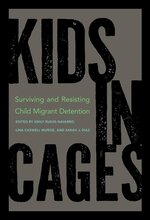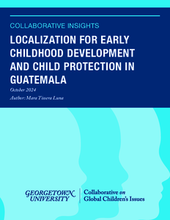This page contains documents and other resources related to children's care in the Americas. Browse resources by region, country, or category.
Displaying 61 - 70 of 3180
This study used a quasi-experimental design to evaluate the Transition to Independence Program (TIP) at Wayne State University in Detroit, Michigan, which provides targeted financial aid, concrete supports, academic coaching, and navigation assistance for college students with foster care experience. Findings show TIP participants had significantly higher retention rates than non-participating peers with foster care backgrounds and performed on par with low-income, first-generation students without foster care experience.
Summary
This role will lead on the development and implementation of a new child-safeguarding programme in Brazil, as well as contribute to the development of Keeping Children Safe globally.
Parenting author Kayla Craig; Lauren Pinkston, Kindred Exchange; Kristin Langrehr, 111Project; and Stephanie Robinson, Faith to Action, share their own experiences of caring for orphans and adoption. Their reflections provide realistic ways to be involved in supporting orphaned and vulnerable children.
In an interview with Time magazine, Donald Trump was asked if would reinstate a policy that separates children of undocumented children from their parents at the southern border. Widely viewed as a cruel and inhumane response to undocumented immigration, the migrant separation policy became one of the most controversial decisions of Trump’s first term. Despite that, the president-elect refused to rule out bringing it back.
Panama, Uganda, Sri Lanka and Czech Republic among those newly committing to totally prohibit violence against under-18s.
You’re invited to the upcoming webinar Including support for informal kinship care in policy on 6 November at 13:00 UTC. In this webinar, panelists will explore and demonstrate how kinship care can be included in policy and supported without formalisation.
This interdisciplinary work brings together voices from the legal realm, the academic world, and the on-the-ground experiences of activists and practitioners. At the heart of these narratives lies a crucial debate: the tension between harm-reduction strategies and abolition.
This Collaborative Insights report gathers perspectives on strengthening ECD efforts from Guatemalan grassroots practitioners, national social movements, community-based organizations, international non-governmental organizations, donors, and the Guatemalan government.
Adam Crapser has become something of a cause celebre for what critics say is a flawed United States law that unfairly leaves tens of thousands of international adoptees in limbo without citizenship.



